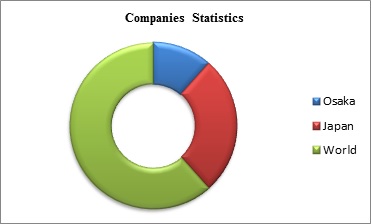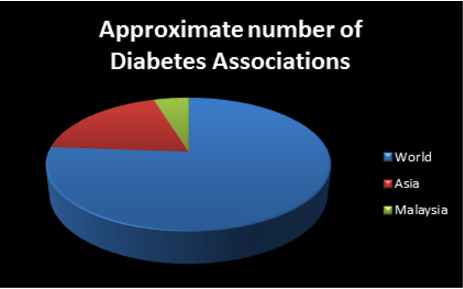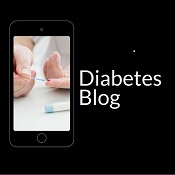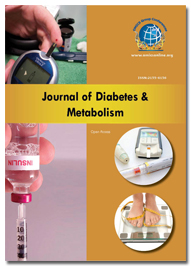Diabetic Complications 2018
Being recognized as a world-renowned organization, Conference Series Ltd takes pride to introduce the commencement of “International Conference on Diabetes and its Complications” from May 28-29, 2018 at Osaka, Japan. The Annual conference aims to provide an opportunity to share knowledge, expertise along with unparalleled networking opportunities between a large number of medical and industrial professionals in this sphere. The Annual Meetings gather renowned scientists, physicians, clinicians, surgeons, young researchers, industrial delegates and talented student communities in the field of diabetic medicine under a single roof where networking and global partnering happens for the acceleration of future research.
Conference Series Ltd through its Open Access Initiative is committed to making genuine and reliable contributions to the scientific community. OMICS Conference Series Ltd Publishing Group hosts over 700 leading-edge peers reviewed Open Access journals and has organized over 1000 scientific conferences all over the world.
Conference series Ltd welcomes all the scientists, physicians, clinicians, surgeons, young researchers, industrial delegates and talented student communities in the field of diabetic medicine to attend this Diabetes Conferences, where all the aspects of diabetes will be discussed under the single roof. Diabetic Complications-2018 will be an excellent amalgamation of academia and industry as it involves every aspect of empirical and conceptual thinking in exploring new dimensions in this field. It is open to all types of research methodologies both from academia and industry.
Diabetic Complications 2018 is an international platform for presenting research about diabetes management and therapeutics, exchanging ideas about it and thus contributes to the dissemination of knowledge in the management of the disease for the benefit of the society. Diabetic Complications 2018 is where the future of management and novel therapeutics for the disease intersects.
Diabetes has increasingly become a lifestyle-related disease as it afflicts young and old. In 2016, the value of the diabetes therapeutics market in Asia-Pacific (APAC) countries was an estimated $7.5 billion, and it is forecast to grow at a Compound Annual Growth Rate (CAGR) of 7.1% between 2013 and 2020 to $10.5 billion. The latest report states that of the four major APAC countries (China, India, Japan and Australia), China will see the fastest expansion, with a CAGR of 11.1% over the forecast period. This will be driven by an increase in the prevalent population due to urbanization, advancement in the lifestyle of the people and by expected drug launches.
Diabetes, Types and Symptoms:
Diabetes is a number of diseases that involve problems with the hormone insulin, and also deficiency in the improper secretion of insulin cells, which is considered as an important factor to affect the people with that disease. Normally, the pancreas (an organ behind the stomach) releases insulin to help your body store and use the sugar and fat from the food you eat. If the diabetes occurs the major part of the pancreas region will be affected. The symptoms description for the diabetes is noted as Patients with high blood sugar will typically experience frequent urination; they will become increasingly thirsty and hungry. With diabetes mellitus, your body doesn't make enough insulin; it can't use the insulin which it produces, or a combination of both. High levels of blood glucose can cause damage the blood vessels in your kidneys, heart, eyes, or nervous system, lack of concentration and lack of consciousness. Diabetes is also occurring on the various types such as diabetic retinopathy, diabetic neuropathy, diabetic nephropathy, gestational diabetes, juvenile diabetes and etc.
Related Conferences:
International Conference on Diabetes and its Complications May 28-29, 2018 Osaka, Japan; Global Meeting on Diabetes and Endocrinology July 23-24, 2018 Kuala Lumpur, Malaysia; Global Experts Meeting On Diabetes, Hypertension & Metabolic Syndrome July 30-31, 2018 Melbourne, Australia; 24th International Conference on Herbal and Alternative Therapies for Diabetes August 17-18, 2018 Singapore ; 25th Global Summit on Human Metabolic Health- Diabetes, Obesity, & Metabolism September 6-8, 2018 Dubai, UAE
Complications in diabetes:
The Complications in diabetes is discussing about that the struggle and severe effects, and harmfulness of affecting parts of body due to diabetes. Long-standing complications of diabetes grow progressively which shows that the number of years of having diabetes is directly proportional to the higher risk of complications. Sometimes diabetes complications may be restricting or even lethal. Focusing on diabetic complications is important. An Controlled blood sugar have less diabetic complications. If the blood sugar level has not maintained properly means it will have more diabetic complications. The briefer ideas of health issues quicken the venomous effects of diabetes which include smoking, high diabetes, high cholesterol levels, obesity, high blood pressure, and lack of exercise. The process by which vascular disease develops is complex and occurs via numerous pathways that scientists continue to investigate.
Related Conferences:
International Conference on Diabetes and its Complications May 28-29, 2018 Osaka, Japan; Global Meeting on Diabetes and Endocrinology July 23-24, 2018 Kuala Lumpur, Malaysia; Global Experts Meeting On Diabetes, Hypertension & Metabolic Syndrome July 30-31, 2018 Melbourne, Australia; 24th International Conference on Herbal and Alternative Therapies for Diabetes August 17-18, 2018 Singapore ; 25th Global Summit on Human Metabolic Health- Diabetes, Obesity, & Metabolism September 6-8, 2018 Dubai, UAE
Trends in Diabetic Complications:
The trends in diabetic complications discussing that the ideas and prediction of diabetes mellitus Type 1 and 2 with regards of the market analysis of the diabetic products and the overview structure of the diagnostic therapies environment in them. The constructor efforts to develop invasive and non-invasive methods of insulin delivery are set to revolutionize the Diabetes Insulin and Market Analysis of the goods. The Type 2 Diabetes is a more trend and risk factors for the people having these abnormalities. The Type 1 Diabetes is a less trend factor and it is not a huge complications in the researching field of diabetes. The Scientists for the first time able to produce the massive quantities needed for cell transplantation and pharmaceutical purposes with the reference of human embryonic stem cells as a starting point in their research. This will certainly help people recover the Prognosis-related diagnosis of the fatal disease like diabetes. It can be useful to analysis and predict the condition of severed abundant of abnormal cells in the pancreas region.
Related Conferences:
International Conference on Diabetes and its Complications May 28-29, 2018 Osaka, Japan; Global Meeting on Diabetes and Endocrinology July 23-24, 2018 Kuala Lumpur, Malaysia; Global Experts Meeting On Diabetes, Hypertension & Metabolic Syndrome July 30-31, 2018 Melbourne, Australia; 24th International Conference on Herbal and Alternative Therapies for Diabetes August 17-18, 2018 Singapore ; 25th Global Summit on Human Metabolic Health- Diabetes, Obesity, & Metabolism September 6-8, 2018 Dubai, UAE
Diabetes Chronic Complication
Diabetes chronic complication had an idea about the term diabetes mellitus describes several diseases of abnormal carbohydrate metabolism that are characterized by hyperglycemia. It is associated with a relative or absolute impairment in insulin secretion, along with varying degrees, temperatures and basal of peripheral resistance to the action of insulin. If the insulin content has become reached more means the chronic complications gets high. Every few years, the diabetes community revaluates the current recommendations for the classification, diagnosis, and screening of diabetes, reflecting new information from research and clinical practice which in turns help in understanding current prevention and treatment options and cost effectiveness in treatment and prevention of Diabetes. The major two factors are in chronic complications which are Hypoglycemia and Hyperglycemia are the other two factors are the two major complications of diabetes where hyperglycemia is an acute complication sharing many symptoms and hypoglycemia is an acute complication of several diabetes treatments.
Related Conferences:
International Conference on Diabetes and its Complications May 28-29, 2018 Osaka, Japan; Global Meeting on Diabetes and Endocrinology July 23-24, 2018 Kuala Lumpur, Malaysia; Global Experts Meeting On Diabetes, Hypertension & Metabolic Syndrome July 30-31, 2018 Melbourne, Australia; 24th International Conference on Herbal and Alternative Therapies for Diabetes August 17-18, 2018 Singapore ; 25th Global Summit on Human Metabolic Health- Diabetes, Obesity, & Metabolism September 6-8, 2018 Dubai, UAE
Advanced Technologies & Treatments for Diabetes
The Advanced technologies & treatments for diabetes are many in now a days according the region and the specialty of the equipment availability. Current Research in diabetes is focusing on developing Implantable insulin pumps which introduced Insulin pump therapy, disruption of fat metabolism, invasive and non-invasive glucose sensors, Artificial pancreas, insulin delivery systems delivery systems like inhaled, transdermal and implantable devices, Insulin Pens, Bariatric surgery and Conventional therapeutic approaches. The developed countries had an huge impact on the advanced technologies and treatment for diabetes. The modern and easy way of treating diabetes is like insulin pens, insulin inhaled through conventional techniques. The transplantation is done through by means of organ transplantation, tissue transplantation, and donor transplantation. These are the some of the advanced technologies & treatment of diabetes in their core.
Related Conferences:
International Conference on Diabetes and its Complications May 28-29, 2018 Osaka, Japan; Global Meeting on Diabetes and Endocrinology July 23-24, 2018 Kuala Lumpur, Malaysia; Global Experts Meeting On Diabetes, Hypertension & Metabolic Syndrome July 30-31, 2018 Melbourne, Australia; 24th International Conference on Herbal and Alternative Therapies for Diabetes August 17-18, 2018 Singapore ; 25th Global Summit on Human Metabolic Health- Diabetes, Obesity, & Metabolism September 6-8, 2018 Dubai, UAE
Metabolic syndrome
The metabolic syndrome in the diabetes and its complications plays a role of the detailed structure of risk factors in it. The metabolic syndrome is a the most dangerous heart attack risk factors which is a huge cluster of it, diabetes, pre diabetes, abdominal obesity, high cholesterol and high blood pressure. People with Type 1 diabetes does not affect the metabolic syndrome heavily. But in another case the view is People with metabolic syndrome have a five-fold greater risk of developing Type 2 diabetes. The 200 million people which is up to 80% with diabetes globally will die of cardiovascular disease. The way ahead of HIV/AIDS in morbidity and mortality terms puts the metabolic syndrome and diabetes. The morbidity and mortality terms tell that the serious danger actions of diabetes
Related Conferences:
International Conference on Diabetes and its Complications May 28-29, 2018 Osaka, Japan; Global Meeting on Diabetes and Endocrinology July 23-24, 2018 Kuala Lumpur, Malaysia; Global Experts Meeting On Diabetes, Hypertension & Metabolic Syndrome July 30-31, 2018 Melbourne, Australia; 24th International Conference on Herbal and Alternative Therapies for Diabetes August 17-18, 2018 Singapore ; 25th Global Summit on Human Metabolic Health- Diabetes, Obesity, & Metabolism September 6-8, 2018 Dubai, UAE
Genetics of diabetes
The diabetes of the young patients are more in now a days this session states that it is happening through the genes of our parents. The bulk of genetic risk of polygenic disease (for Type 1 and Type 2) stay unresolved. The unresolved problem of this polygenic disease are various identification methods on an raising factors. This subject of the genetics of diabetes deals with the further information of the genetic basis of diabetes and its complications, specifically Diabetic Nephrosis (DN), recent advances in genetic science of diabetes, Diabetes in ethnic teams, genetic manner interactions and understanding the genetic science of diabetes. The diabetes are under United Nations agency and area unit in danger and targeted treatment/interventional methods. Diabetic amyotrophic is discussing that disabling sickness that's distinct from alternative types of diabetic neuropathy. Diabetic neuropathy is the deficiency of the damages on the nerves and diseases on nerves.
Related Conferences:
International Conference on Diabetes and its Complications May 28-29, 2018 Osaka, Japan; Global Meeting on Diabetes and Endocrinology July 23-24, 2018 Kuala Lumpur, Malaysia; Global Experts Meeting On Diabetes, Hypertension & Metabolic Syndrome July 30-31, 2018 Melbourne, Australia; 24th International Conference on Herbal and Alternative Therapies for Diabetes August 17-18, 2018 Singapore ; 25th Global Summit on Human Metabolic Health- Diabetes, Obesity, & Metabolism September 6-8, 2018 Dubai, UAE
Diabetic coma
Diabetic coma is one of a life threatening complication of diabetes which causes unconsciousness. If a diabetic individual have dangerously high blood glucose levels (hyperglycemia) or dangerously lower blood glucose levels (hypoglycemia) can lead to a diabetic coma. The diabetic coma is very uncommon but is very dreadful, if lapsed into, a victim will be alive but may not respond purposely to sights, sounds or other types of stimulation. If left untreated diabetic coma can be fatal.
Related Conferences:
International Conference on Diabetes and its Complications May 28-29, 2018 Osaka, Japan; Global Meeting on Diabetes and Endocrinology July 23-24, 2018 Kuala Lumpur, Malaysia; Global Experts Meeting On Diabetes, Hypertension & Metabolic Syndrome July 30-31, 2018 Melbourne, Australia; 24th International Conference on Herbal and Alternative Therapies for Diabetes August 17-18, 2018 Singapore ; 25th Global Summit on Human Metabolic Health- Diabetes, Obesity, & Metabolism September 6-8, 2018 Dubai, UAE
Diabetes Nursing
Diabetes nursing deals with the factors that are risk in diabetes, treating goals for both the type of diabetes which is Diabetes 1 and Diabetes 2 and personalizing goals for both the type of diabetes. The drugs can also diabetes by means of these factors- Drugs used for other conditions could cause the development of diabetes. Insulin injections are necessary for Type 1, since the body is unable to produce insulin to transport glucose into the cells. If we maintain the Diet for the diabetic is well balanced. The role of Exercise improves muscle tone, strength, and the feeling of well-being. Diet control helps regulate weight, which is extremely important in Type 2 diabetes. The treating goals which for the diabetes nursing are Exercise burns calories, which helps control weight. The Monitoring of blood glucose is essential for all diabetics. Increase self-sufficiency and self-reliance . Protection of the heart, nerves, blood vessels, eyes, and kidneys is happened through control blood glucose levels. Learn about your disease and how to manage it. Medication, exercise and balanced diet .
Related Conferences:
International Conference on Diabetes and its Complications May 28-29, 2018 Osaka, Japan; Global Meeting on Diabetes and Endocrinology July 23-24, 2018 Kuala Lumpur, Malaysia; Global Experts Meeting On Diabetes, Hypertension & Metabolic Syndrome July 30-31, 2018 Melbourne, Australia; 24th International Conference on Herbal and Alternative Therapies for Diabetes August 17-18, 2018 Singapore ; 25th Global Summit on Human Metabolic Health- Diabetes, Obesity, & Metabolism September 6-8, 2018 Dubai, UAE
Current challenges in new therapies to diabetes complications
The current challenges in new therapies to diabetes complications is discussing that drug developing opportunities. And the current challenging problems of Diabetes dyslipidemia, Diabetes and parkinson. The scientist and researchers works on the field to overcome the facing challenges of diabetes. The therapies are under in depth search of the diabetes complications and the recent surgeries advantages and Bioinformatics tools and techniques used in Diabetes Research are discussed under the challenges of the diabetes complications.
Related Conferences:
International Conference on Diabetes and its Complications May 28-29, 2018 Osaka, Japan; Global Meeting on Diabetes and Endocrinology July 23-24, 2018 Kuala Lumpur, Malaysia; Global Experts Meeting On Diabetes, Hypertension & Metabolic Syndrome July 30-31, 2018 Melbourne, Australia; 24th International Conference on Herbal and Alternative Therapies for Diabetes August 17-18, 2018 Singapore ; 25th Global Summit on Human Metabolic Health- Diabetes, Obesity, & Metabolism September 6-8, 2018 Dubai, UAE
Role of oxidative stress in diabetic complications
Oxidative stress results from increased ROS and/or reactive nitrogen species (RNS). Examples of ROS include charged species such as superoxide and the hydroxyl radical, and uncharged species such as hydrogen peroxide and singlet oxygen. The possible sources of oxidative stress in diabetes might include auto-oxidation of glucose, shifts in redox balances, decreased tissue concentrations of low molecular weight antioxidants, such as reduced glutathione (GSH) and vitamin E, and impaired activities of antioxidant defenses enzymes such as superoxide dismutase (SOD) and catalase (CAT). The oxidative stress plays a main factor in diabetic complications because the oxidative stress lead to the whole body damage and the vitamin deficiency occurs and the sleepiness may happen. The blood glucose level is not on normal flow and the body imbalance takes place.
Related Conferences:
International Conference on Diabetes and its Complications May 28-29, 2018 Osaka, Japan; Global Meeting on Diabetes and Endocrinology July 23-24, 2018 Kuala Lumpur, Malaysia; Global Experts Meeting On Diabetes, Hypertension & Metabolic Syndrome July 30-31, 2018 Melbourne, Australia; 24th International Conference on Herbal and Alternative Therapies for Diabetes August 17-18, 2018 Singapore ; 25th Global Summit on Human Metabolic Health- Diabetes, Obesity, & Metabolism September 6-8, 2018 Dubai, UAE
Antibiotics for diabetes
Antibiotics for diabetes discussing the sessions of the antibiotics which can be given to the Type 1 diabetes mellitus for the diagnosis purpose and several other research works are under analysis for the type of foot infections and the antibiotics which is given for other diseases and may lead to occur of diabetes mellitus and the risk factors of antibiotics on other diseases and diabetes diseases. The adult session which consumes antibiotics and their harmful ones. The age factors plays a main role in the antibiotics for diabetes which may vary from child to adult. The antibiotics versus good bacteria in gut shows the antibiotics on the bacteria field.
International Conference on Diabetes and its Complications May 28-29, 2018 Osaka, Japan; Global Meeting on Diabetes and Endocrinology July 23-24, 2018 Kuala Lumpur, Malaysia; Global Experts Meeting On Diabetes, Hypertension & Metabolic Syndrome July 30-31, 2018 Melbourne, Australia; 24th International Conference on Herbal and Alternative Therapies for Diabetes August 17-18, 2018 Singapore ; 25th Global Summit on Human Metabolic Health- Diabetes, Obesity, & Metabolism September 6-8, 2018 Dubai, UAE
Herbal medicine for diabetes
Herbal medicine for diabetes is extracting the medicine from the natural sides and the herbal sides. The ancient tradition people uses the herbal medicine for all the types of diseases. It is safe and good enough. Herbal medicine, also called botanical medicine or phytomedicine, refers to using a plant's seeds, berries, roots, leaves, bark, or flowers for medicinal purposes. They are sold as tablets, capsules, powders, teas, extracts, and fresh or dry plants. Many people believe "natural medicine" are always good and safe for them so use herbal medicines to try to maintain or improve their health. The use of herbal remedies is more prevalent in patients with chronic diseases asthma, end-stage renal disease, all endocrine disorders such as diabetes, Osteoporosis, Pancreas Disorders and Adrenal Disorders etc.
Related Conferences:
International Conference on Diabetes and its Complications May 28-29, 2018 Osaka, Japan; Global Meeting on Diabetes and Endocrinology July 23-24, 2018 Kuala Lumpur, Malaysia; Global Experts Meeting On Diabetes, Hypertension & Metabolic Syndrome July 30-31, 2018 Melbourne, Australia; 24th International Conference on Herbal and Alternative Therapies for Diabetes August 17-18, 2018 Singapore ; 25th Global Summit on Human Metabolic Health- Diabetes, Obesity, & Metabolism September 6-8, 2018 Dubai, UAE
Epidemiology and public health
The facet of epidemiology concerned with identifying health-related causes and effects. Analytical epidemiology aims to research and study risk and protector factors of diseases and identify factors in a diseased population that varies from a non-diseased population. Where descriptive epidemiology helps to describe because of disease within a population, it helps to understand that helps to understand the occurrence of disease. The usual way to gain this knowledge is by group comparisons. Such a comparison starts from one or more hypotheses about how the determinant may influence occurrence of disease. Analytical epidemiology determines the cause of an outbreak. Using the case control method, the epidemiologist can look on the major factors that may causes the disease. The epidemiology and public health is discussing that the associated terms with the diabetes with the epidemiology ones. Then the risky factors of diabetes on its epidemiology such as obesity, heart stroke, kidney failure, and the nutrition deficiency factors.
Related Conferences:
International Conference on Diabetes and its Complications May 28-29, 2018 Osaka, Japan; Global Meeting on Diabetes and Endocrinology July 23-24, 2018 Kuala Lumpur, Malaysia; Global Experts Meeting On Diabetes, Hypertension & Metabolic Syndrome July 30-31, 2018 Melbourne, Australia; 24th International Conference on Herbal and Alternative Therapies for Diabetes August 17-18, 2018 Singapore ; 25th Global Summit on Human Metabolic Health- Diabetes, Obesity, & Metabolism September 6-8, 2018 Dubai, UAE
Market analysis of diabetic products
Market analysis for Diabetic products are mainly discussed by the Manufacturer side and the Marketing side.. Market analysis for Diabetic products discussing that the easier way of treating the diabetes in the public opinion. Diabetes care market encompasses of technologies, devices and therapeutics in relative to diabetes. Key Players profiled in the report include Glaxosmithkline, Novo Nordisk, Roche, Medtronicand etc. Novo Nordisk is a leading global provider of diabetes products. The company progresses, manufactures and markets its medical devices and technologies to hospitals, doctors, researchers, scientists and patients in approximately 160 countries. More number of countries shows their interests and involve in it for their further development. These interest on this field will help to develop the diagnosis of diabetes.
Related Conferences:
International Conference on Diabetes and its Complications May 28-29, 2018 Osaka, Japan; Global Meeting on Diabetes and Endocrinology July 23-24, 2018 Kuala Lumpur, Malaysia; Global Experts Meeting On Diabetes, Hypertension & Metabolic Syndrome July 30-31, 2018 Melbourne, Australia; 24th International Conference on Herbal and Alternative Therapies for Diabetes August 17-18, 2018 Singapore ; 25th Global Summit on Human Metabolic Health- Diabetes, Obesity, & Metabolism September 6-8, 2018 Dubai, UAE
Importance & Scope:
The prevalence of diabetes for all age-groups worldwide was estimated to be 2.8% in 2000 and 4.4% in 2030. The total number of people with diabetes is projected to rise from 171 million in 2000 to 366 million in 2030. The prevalence of diabetes is higher in men than women, but there are more women with diabetes than men. The urban population in developing countries is projected to double between 2000 and 2030. The most important demographic change to diabetes prevalence across the world appears to be the increase in the proportion of people >65 years of age. These findings indicate that the “diabetes epidemic” will continue even if levels of obesity remain constant. Given the increasing prevalence of obesity, it is likely that these figures provide an underestimate of future diabetes prevalence.
The number of people with diabetes has risen from 108 million in 1980 to 422 million in 2014. The global prevalence of diabetes* among adults over 18 years of age has risen from 4.7% in 1980 to 8.5% in 2014. In 2012, an estimated 1.5 million deaths were directly caused by diabetes and another 2.2 million deaths were attributable to high blood glucose. Almost half of all deaths attributable to high blood glucose occur before the age of 70 years1. WHO projects that diabetes will be the 7th leading cause of death in 2030.
Diabetic Complications 2018 will feature the latest developments in research, diagonosis and prevention and management of diabetes, new insulin analogues and new technologies and devices for diabetic prevention, and for treating obesity and many more. Not only will this innovative conference enhance your practical and theoretical knowledge, it will provide you with the unique opportunity to network with a wide range of professionals in the field of diabetes technologies and treatments.
Hospitals Associated with Diabetes Research
Diabetes being one of the most fatal, most fast-growing diseases in the world with the maximum elevation rate in the incidence has best hospitals across the globe. Diabetes has maximum sufferings in the Asia pacific region and USA giving a reason to have the best management. Best Diabetes hospitals as per the area are as follows:
Best Diabetes hospitals in Japan:
1. National Hospital Organization
2. Kyoto University Hospital
3. Japan Hospital Association
4. University of Tokyo Hospital
5. Aizawa Hospital
6. University Hospital Kumamoto University
7. Osaka University Hospital
8. International Catholic Hospital (Seibo Hospital)
9. Yokohama City University Medical Center
10. National Cardiovascular Center

Associations Associated with Diabetes Research
To encourage, educate, update and train registered medical practitioners, dieticians, qualified nurses and other appropriately qualified paramedical personnel in the field of Diabetes various well-known societies/associations are working across the globe to efficiently prevent and combat the fatal disease.
Major Diabetes Associations around the Globe
-
Diabetes Indian Association
-
Canadian Diabetes Association
-
International Diabetes Federation
-
Japan Diabetes Society
-
Austrian Diabetes Association
-
Diabetes UK
-
Diabetes South Africa
-
Spanish Diabetes Society (Spain)
-
Swedish Diabetes Association
-
Korean Diabetes Association
Major Diabetes Associations in Japan
-
Japan Diabetes Society
-
Diabetes Japan
-
Japan Hospital Association
-
Nagoya University Hospital
-
International Medical Center of Japan
-
Institute of Medical Science University of Tokyo

Universities Associated with Diabetes Research
There are around 5000 medical universities in the world out of which approximately 3000 universities focusing on Endocrinology and Diabetes researches.
Top Medical Universities for Diabetes in the world:
-
Albany Medical College
-
Baylor College of Medicine
-
Creighton University School of Medicine
-
Dartmouth Medical School
-
Florida International University College of Medicine
-
Georgetown University School of Medicine
-
Howard University College of Medicine
-
Harvard Medical School
-
Johns Hopkins University School of Medicine
-
Pennsylvania State University College of Medicine
Diabetes Asia Pacific 2017
19th Asia Pacific Diabetes Conference (Diabetes Asia Pacific-2017) convoked by Conference Series during July 20-22,2017 which was successfully held at Novotel Melbourne St Kilda, Melbourne, Australia with a theme “Emphasis on Treatments and Exploring the Diabetic Complications” was a great success where eminent keynote speakers from various reputed institutions with their resplendent presence addressed the gathering.
This one-stop meeting provided comprehensive updates, education, and information on current and emerging Diabetic issues and challenges.
The pragmatic meet organized by Conference Series brought together a group of diagnostic therapists, physicians, academic scientists, industry researchers, scholars, decision makers, public health professionals and other health care professionals from across the globe with interest and expertise in the field of diabetes research. The conference marked the successful gathering of eminent speakers from various reputed organizations driving the two-day event into the path of success and their regnant talks enlightened the gathering.
We are also thankful to the following exhibitor for their participation and interactive sessions:
· ARO Systems
The meeting was carried out through various sessions, in which the discussions were held on the following major scientific tracks:
. Diabetes Types and Symptoms
· Genesis of Diabetes
· Screening of Diabetes
· Hereditary Of Diabetes
· Transplantation in Diabetes
· Diabetes Medications & Pharmacotherapy
· Diabetes and associated Disorders
· Diabetes Market and Business Analysis
· Management of Diabetes
· Biomarker Discovery for Treatment of Diabetes
Diabetes Asia Pacific-2017 Organizing Committee would like to thank the Moderator of the conference, Dr. Richard Sadig, University of Norte Dame, Australia who contributed a lot for the smooth functioning of this event.
Diabetes Asia Pacific-2017 extends its warm gratitude to all the Honorable Guests and Keynote Speakers of the event:
Grant Brinkworth, Commonwealth Scientific and Industrial Research Organization, Australia.
Richard Sadig, University of Notre Dame, Australia.
Conference Series is privileged to felicitate Diabetes Asia Pacific 2017 Organizing Committee, Chairs & Co-Chairs who supported for the success of this event. Conference Series would like to thank every individual participant for the enormous exquisite response. This inspires us to continue organizing events and conferences for further research in the field of Diabetes.
With the valuable feedback received from the participants of Diabetes Asia Pacific-2017, Conference Series is glad to announce the commencement of “International Conference on Diabetes and its complications” to be held during May 28-29, 2018 in Osaka, Japan. We welcome all the eminent researchers, students and delegate participants to take part in this upcoming conference to witness invaluable scientific discussions and contribute to the future innovations in the field of managing diabetes and its concomitant risk factors.
Conference Highlights
- Diabetes, Types and Symptoms
- Complications in diabetes
- Trends in Diabetic Complications
- Diabetes Chronic Complication
- Advanced Technologies & Treatments for Diabetes
- Metabolic syndrome
- Genetics of diabetes
- Diabetic Coma
- Diabetes Nursing
- Current challenges in new therapies to diabetes complications
- Role of oxidative stress in diabetic complications
- Antibiotics for diabetes
- Herbal medicine for diabetes
- Epidemiology and public health
- Market analysis of diabetic products
To share your views and research, please click here to register for the Conference.
To Collaborate Scientific Professionals around the World
| Conference Date | May 28-29, 2018 | ||
| Sponsors & Exhibitors |
|
||
| Speaker Opportunity Closed | Day 1 | Day 2 | |
| Poster Opportunity Closed | Click Here to View | ||
Useful Links
Special Issues
All accepted abstracts will be published in respective Our International Journals.
Abstracts will be provided with Digital Object Identifier by
























